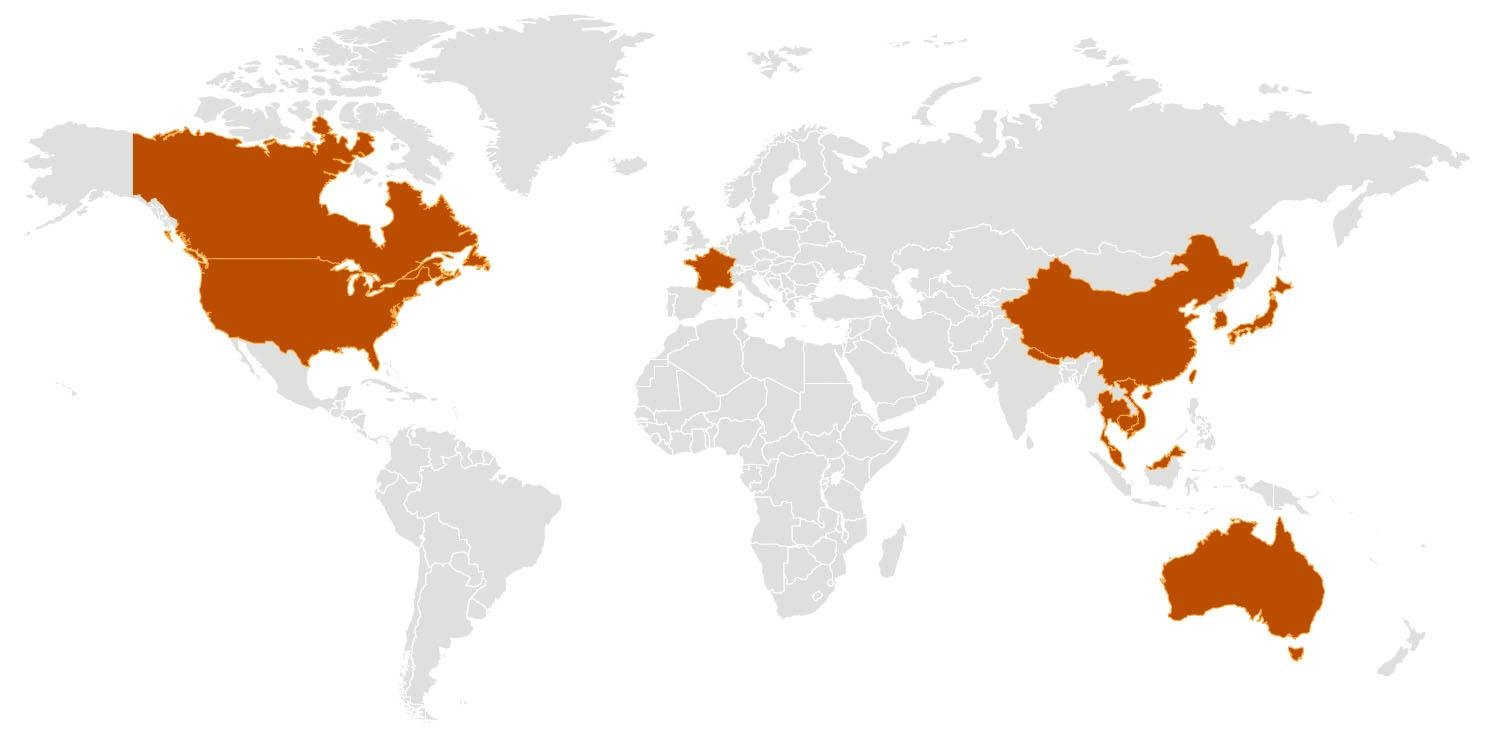World Governments Plan Wuhan Repatriation Flights

Governments around the globe are planning special charter flights to repatriate their citizens from Wuhan, China, as the city lockdown nears its first full week.
Currently, no one is allowed to leave or enter the city of 11 million, as airports and train stations have closed in efforts to control the spread of the novel coronavirus (2019-nCoV).
The Japanese government has confirmed it will charter flights to evacuate Japanese citizens working in Wuhan. According to a Reuters source, All Nippon Airways (ANA) said it is currently “preparing for multiple flights” to Wuhan, with one flight planned for the evening of Jan. 28. ANA has not immediately responded to Aviation Week’s queries.
Japan Airlines (JAL) told Aviation Week the flag carrier was not asked or contracted by the government to carry out such flights but might be called to do so if the situation changes and requires more flights. About 560 to 710 Japanese are registered in the city.
A U.S.-bound charter flight arranged by the U.S. State Department left Wuhan early Jan. 28, local time. The Kalitta Air Boeing 747-400 freighter outfitted with temporary seats for about 240 passengers is expected to arrive in Anchorage at about 10:30 p.m. local time Jan. 28, FlightRadar24 data show. On arrival in Anchorage, passengers will undergo medical screening, prior to the flight continuing on to Ontario International Airport in California. An estimated 1,000 U.S. citizens are in Wuhan.
South Korea is the latest Asian country to prepare flights to evacuate close to 700 of its citizens in Wuhan, with the first flight expected to depart Jan. 30. The consulate general’s office in the city added that Chinese nationals will not be allowed on board, even if they are family members of Korean citizens. An Associated Press report suggests that passengers will be expected to pay KRW300,000 ($255) for every adult and KRW225,000 per child by Feb. 28.
Korean Air said discussions are still underway with the government and plans are not yet firm.
The Singapore government is also currently studying plans to evacuate Singaporeans in Wuhan and is in talks with Chinese authorities.
Singapore’s LCC Scoot deployed a relief flight to Hangzhou, China on Jan. 24 to transport nine Singaporeans and 11 cabin crew and pilots, after all 314 passengers on the previous flight underwent enhanced screening. Among the passengers, 110 were initially bound for Wuhan before the cancellations and were transferred to the Hangzhou flight.
Meanwhile, the LCC has received permission from relevant Chinese authorities and will be taking two one-way flights to Wuhan on Jan. 29 and Jan. 30 to facilitate the return of passengers affected by the flight cancellations.
The Royal Thai Air Force said it has four C-130 Hercules cargo aircraft on standby once the Thai government gives the green light. Currently, Thailand has the most confirmed cases—14—outside of Greater China.
Germany and France are also considering similar plans to launch evacuation flights for its respective citizens, using military transport aircraft.
The German Luftwaffe will send an Airbus A310 to China on Jan. 29, departing from Cologne-Wahn via Shanghai to Wuhan. Some Bundeswehr pilots are already on their way to China on scheduled flights to take over the A310 for the return flight. The return to Frankfurt for 90 German citizens is planned for the evening of Jan. 30. Reportedly 14 people will have to be quarantined on arrival.
The French health ministry has confirmed that French citizens can be repatriated from Wuhan on a dedicated flight with a medical team on board in the coming days. No details have been given on how many flights or which aircraft type will be used. Passengers testing positive for the virus will be taken to the hospital and those testing negative will be quarantined for 14 days on arrival. There are three confirmed cases so far in France.
Responding to a request for assistance from France, the European Commission activated its EU Civil Protection Mechanism Jan. 28, mobilizing two aircraft to repatriate EU citizens from the Wuhan area to Europe. The first aircraft is scheduled to depart from France early Jan. 29; a second will deploy later in the week, the EC said. “EU citizens present in the region and who wish to be repatriated can still request it, no matter their nationality,” the EC said. “Initial numbers indicate that around 250 French citizens will be transported in the first aircraft and over 100 EU citizens from other countries will join the second aircraft.” Only healthy or asymptomatic citizens will be authorized to travel.
“We stand ready to support Member States and ensure a strong and coordinated EU response to the developing situation of the coronavirus, outside and within the Union,” European Commissioner responsible for Health and Food Security Stella Kyrikides said. “We will continue to monitor the situation closely with the European Centre for Disease Prevention and Control and remain in close contact with our Member States.”
Within China, carriers including Air China, China Eastern and Hainan Airlines have operated charter flights to ferry medical staff and supplies to Wuhan. Shenzhen Airlines is also offering priority and free transport services for medical cargo to Wuhan on its flights.
Separately, in line with the Hong Kong government’s plans to limit cross-border travel, the territory’s flagship carrier, Cathay Pacific Airways, has announced it will slash capacity to and from China by at least 50% from Jan. 30 to the end of March. Already severely impacted by the anti-government protests, in 2019 Cathay’s capacity to the mainland dropped 4.2% year-over-year (YOY), and traffic (measured in RPKs) declined 10.9% YOY. The airline has already announced plans to cut 2020 capacity by 1.4% in response to poor demand to Hong Kong.








